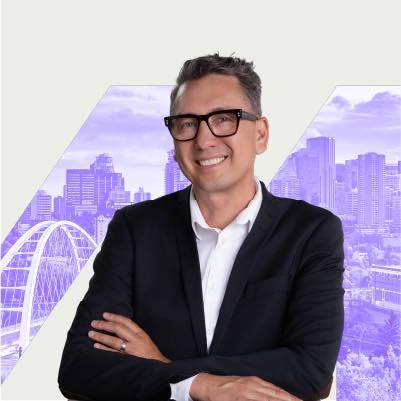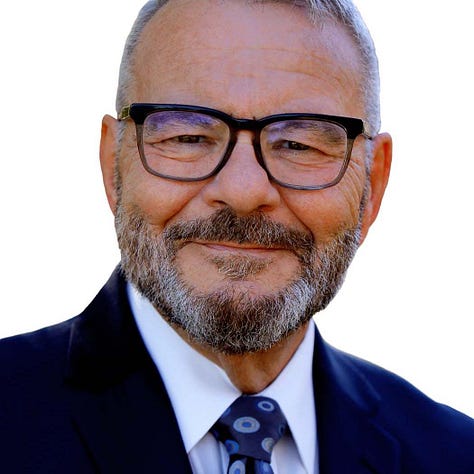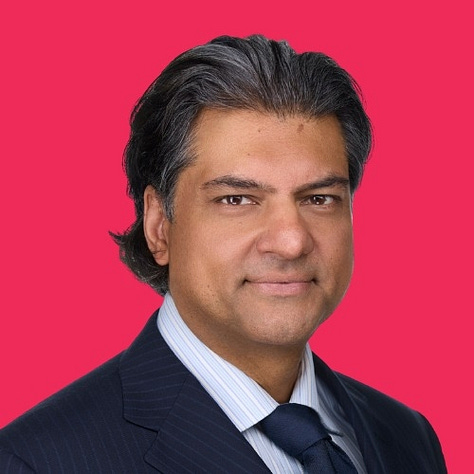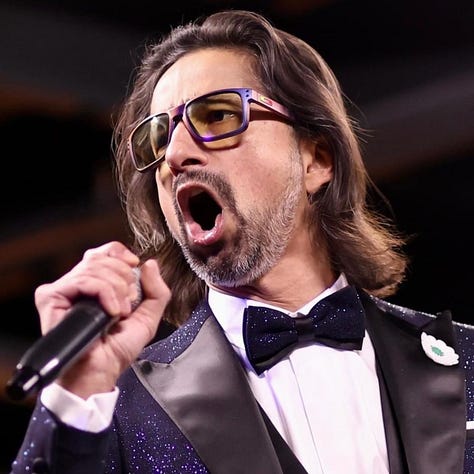Edmonton's 2025 Mayoral Election: A Guide for the Perplexed
Edmonton's vote is happening as part of province-wide civic elections that are the first in decades with political parties and first since 2017 with corporate cash.
Municipalities across Alberta have civic elections occurring on Monday, in which mayors and councillors, as well as public and separate school board trustees, will be getting elected.
Regardless of what happens on Oct. 20, Edmonton will have a new mayor after Amarjeet Sohi made an ill-fated effort to return to federal politics, getting trounced as a Liberal candidate in April’s federal election.
This year’s municipal elections will be somewhat different from the previous round of local elections in 2021, courtesy of last year’s Municipal Affairs Statutes Amendment Act.
Corporate and union cash, which Alberta’s one-term NDP government banned from municipal elections at the end of 2018, are back, with the same $5,000 total limit per union or corporation that applies to individual donors.
In a sop to the culture war-obsessed Take Back Alberta troglodytes, the UCP banned electronic vote tabulators, meaning we won’t know the full election results for days.
The most immediately apparent difference, however, is the introduction of political parties to municipal politics in Edmonton and Calgary, creating another entity, in addition to individual candidates, to which individuals, corporations and unions can max out their donation.
In Edmonton, the capital city that is often the seat of opposition to conservative governments in Alberta, there are two political parties registered in this election, both of which are conservative — the establishment-friendly A Better Edmonton and the more populist Principled Accountable Coalition for Edmonton, or PACE.
A Better Edmonton is running a full slate of 12 council candidates, including incumbent Ward tastawiyiniwak councillor Karen Principe, plus mayoral candidate Tim Cartmell, whereas PACE has just nine council candidates. Everyone else is running as an independent.
There are essentially six major candidates for Edmonton mayor. The perceived frontrunners—independent Andrew Knack and A Better Edmonton’s Cartmell — are sitting councillors. Another two — Michael Walters and Tony Caterina — are former councillors.






Rahim Jaffer is a former four-term Reform/Alliance/Conservative MP who hasn’t ran in an election since he lost his Edmonton-Strathcona seat to the NDP in 2008. Omar Mohammad, the only true political outsider that has gained significant popular support in the race, is a paediatric dentist.
For Edmontonians unsure of whom to vote for next week, I’ve compiled where each of these candidates stand on four major issues — housing, transit, public safety and taxation — based on their campaign platforms. Caterina doesn’t have a platform, so I’ve compiled his positions based on a series of press releases and questions from the public on his website.
I’ve ranked the candidates by the amount of money they’ve raised from contributions, which shows one candidate leading the pack by far.
Although they have the ability to set the tone and priorities for the next city council, Edmonton’s mayor has just one vote on council.
Don’t forget to do your research on which council and school board trustee candidates are running in your ward, and who most aligns with your values.
To that end, local gadfly Troy Pavlek has compiled a list of all council candidates running in this election, with links to their campaign pages and social media profiles so you can learn more. Pavlek, who’s made no secret of his support for Knack, has also made endorsements for each ward.
Public education advocacy group Support Our Students has a guide to Edmonton Public School Board trustee candidates.
Tim Cartmell
Donations: $834,552
Housing: Cartmell wants to partially roll back the city’s Zoning Bylaw renewal by reducing the maximum number of infill row housing units from eight to four in mid-block developments and six in corner lots.
The Better Edmonton mayoral candidate, however, was on a family vacation to the Maritimes when council held a July vote on whether to continue allowing eight units mid-block, which passed 6 to 5. Had Cartmell been present to vote against it, the motion would have failed on a tie.
He also wants to prioritize new housing in “well-serviced, high-potential areas like downtown, Blatchford, along major transit corridors, and near post-secondary institutions,” and establish parking requirements from 0.5 to 0.75 per unit.
Cartmell would require that every “mature neighbourhood infill application” include information on the “cumulative effect of past infill projects on the neighborhood [sic] since January 2024,” when the Zoning Bylaw renewal was implemented, including the number of units and bedrooms added, projected population increase, and the impact on property values.
Transit: Cartmell seeks to end the “chaos” of road closures due to LRT construction by creating a single plan for all infrastructure projects, including roads, bridges, LRT and underground infrastructure, to ensure they don’t overlap.
Cartmell sees the provincial government’s Passenger Rail Master Plan as a “rare chance to align our local infrastructure timelines with a regional transportation vision” by coordinating “bridge renewal, downtown access, and future commuter rail investments” while minimizing “local disruption.”
Public safety: The starting point of Cartmell’s plan is to show “respect, not ridicule” for “our first responders,” but he’s clearly referring to police when says that “for too long, City Council has second-guessed your work and chipped away at your budget,” and that “some councillors chose to disparage the service.”
In fact, Edmonton has consistently increased police funding since 2020, even as it clawed back $20 million from the police budget to fund supportive housing in 2021 and 2022.
Cartmell proposes a “zero tolerance” policy “for crime and open aire [sic] drug use” while lobbying the provincial and federal governments for more funding for mental health, addictions and housing supports, and funding Indigenous-led service providers to address the root causes of crime.
He would press the federal government to reform the bail system “to stop the revolving door for repeat violent offenders” and transform Edmonton into “Alberta’s prosecution capital.”
Taxes: Cartmell pledges to be “tough on taxes, but smart on what we tax.” He plans to do so by lowering the non-residential tax rate “to give Edmonton businesses a fighting chance,” but doesn’t specify by how much he wants to reduce it.
He proposes to defer increased taxes resulting from a business’s expansion, renovation or retrofits in a light industrial or employment zone for up to five years after the project’s completion.
Cartmell wants to “urgently” transform Edmonton into “Canada’s defence hub,” which he says would secure further private investment and attract “high-tech jobs,” increasing the non-residential tax base.
He promises to ensure that future property tax increases are tied to inflation.
Omar Mohammad
Donations: $115,730
Housing: Mohammad wants to fast track housing development permits that have an affordable housing component, expedite permits for homes “that have identical, mechanical, structural, and space designs to ones that have successfully been approved” over the past two years, and create a “public-facing dashboard that tracks permit approval timelines by project type.”
He wants to cap infill developments at six units per mid-block residential lot and require one on-site parking space per unit, in addition to increasing the maximum height for mid-scale residential zoning from four-to-six to six-to-eight stories and re-introduce parking requirements of 0.33 spaces per unit.
Riffing off of New York City mayoral frontrunner Zohran Mamdani, who wants to build a municipally run grocery store in each borough, Mohammad pledges to pilot a “city subsidized, non-profit grocery store,” which will sell discounted groceries to people who fall below a certain income threshold or are recommended by “established non-profit groups” so that they don’t have to choose between paying for housing and food.
Transit: The only aspect of Mohammad’s platform that deals directly with public transit concerns security. He wants to introduce turnstiles at transit stations to ensure that only those who pay fares are allowed to enter, with “zero-tolerance for chronic fare evaders and violent passengers.”
Mohammad pledges to improve visibility with better lighting at transit stations, but also wants to introduce CCTV “in all vehicles and stations,” using “AI-assisted surveillance technology” to monitor the cameras for “disturbances as they happen.”
Mohammad wants more uniformed peace officers, security employees and outreach teams to patrol LRT stations, as well as buses and trains.
When it comes to infrastructure projects more broadly, he pledges to adopt a “fix before you build” principle, which would prioritize “core infrastructure renewal” over new projects, and introduce a public dashboard to track the progress of ongoing infrastructure projects.
Public safety: Mohammad wants to increase police and peace officer presence in “core retail areas,” with input from business associations on which areas should be prioritized.
He would partner with police to establish a targeted repeat offender unit, which would focus on arresting “high-volume shoplifters and vandals who hit small businesses repeatedly,” and city contractors would be required to remove graffiti within 24 to 48 hours.
A Mohammad mayoralty would create a prolific offender task force alongside the Edmonton police, Crown prosecutors and probation officers “to monitor and swiftly act on breaches by known high-risk offenders.”
He pledges to engage in an “enforcement blitz” against those who violate “public nuisance, obstruction, and open-air drug use bylaws — coupled with streamlined court processing for repeat offenders.”
Taxes: Mohammad pledges to freeze property taxes, stop borrowing money, and balance the city’s capital budget for at least two years by “pausing all newly proposed non-essential major capital projects” and reviewing capital projects that are already underway for cost savings.
He says he will freeze all municipal elected officials’ salaries until these three goals are met.
Andrew Knack
Donations: $42,112
Housing: Knack pledges to establish Edmonton’s first affordable housing development corporation, which would cover the “challenges of housing development,” enabling housing non-profits to focus on providing their services.
Knack promises to “launch a grant program to offset planning and development costs for affordable housing providers.”
He wants to create an affordable housing acquisition program, which would aim to “preserve affordable housing” while enabling non-profits to “compete with private developers for existing buildings,” and establish a dedicated position to support the development of more housing cooperatives, which are owned and managed by residents.
In terms of neighbourhood growth, Knack pledges to introduce a vacant land tax, reduce the maximum size of mid-block row housing to six units and incentivize the development of more three-bedroom units.
He wants to strengthen the city’s existing Heritage Places Strategy and introduce a bylaw “to protect mature trees on infill sites to maintain the character of mature neighbourhoods.”
Knack says he will introduce a landlord registry to identify problematic landlords while supporting those who “reduce displacement and enhance safety.”
Transit: Knack says he will make “targeted investments” to improve public transit. He pledges to “improve transit connectivity by adding more city-wide express routes,” enhance “service frequency, especially during off-peak hours, to better serve suburban and developing areas,” and increase bus service in “neighbourhoods that need it.”
He pledges to “advocate for city-building projects,” such as the Metro Line LRT expansion from Blatchford to Castle Downs, and improve service from Edmonton International Airport to downtown, but stopped short of endorsing the province’s plan for a heavy-rail line to the airport.
Knack would hire transit station attendants, and “increase opportunities” for businesses and community groups to operate out of transit centres, “to encourage vibrancy and improve perceptions of safety.”
He wants to apply Crime Prevention Through Environmental Design principles, which designs spaces with increased visibility to discourage criminal activity, to new stations, as well as to existing “high incident” stations.
Public safety: Knack wants to maintain the existing Edmonton police funding formula, which ties budget increases to population growth, inflation and negotiated wage increases, while reviewing it regularly “in response to city needs.”
Knack wants the city’s Community Safety and Well-Being grant program, which funds preventative measures, to also have a consistent funding formula.
He says he will apply a “public health approach to violence prevention,” collaborating with the province “to increase supports for mental health and substance use disorders,” including recovery and harm reduction facilities, as well as housing and culturally appropriate Indigenous programming.
Knack says he will press the federal government to introduce “thoughtful bail reform” while ensuring that provincial funding for joint prevention programs, such as the Family and Community Social Services program, is increased to keep up with inflation and population growth.
Taxes: Knack promises to explore reducing property taxes “in strategic areas to make Edmonton the location of choice for target industries” while advocating that the province reinstate “tax incentives for digital industries,” with gaming as a specific target.
He plans to use additional “property tax incentives” to encourage residential development in strategic areas, including downtown, business improvement areas and main streets.
Knack says he will examine “maximizing” the city’s EPCOR dividends and other returns on investments so the city doesn’t “rely exclusively on taxation to support the services that Edmontonians count on every day.”
He pledges to enhance “certainty and predictability around property taxation,” but doesn’t explain how he plans on doing this.
Michael Walters
Donations: $36,347
Housing: Walters pledges to increase the number of rental units by 5,000 annually “by streamlining approvals,” developing in accordance with the conditions attached to provincial and federal funding programs, and “removing barriers” to building more rental and affordable housing units.
His policy on infill is the same as Cartmell’s — reducing maximum row housing units to four mid-block and six on street corners.
Walters wants to allow greenfield development south of 41 Avenue S.W., which aligns entirely with the demands in a July report from BILD Edmonton Metro, a residential developers advocacy organization.
Transit: Walters wants to introduce a four-year transit fare freeze “until safety and reliability is improved across the transit system,” although he doesn’t specify by what metric he’ll assess safety and reliability.
He wants to proceed with the planned Metro Line LRT expansion to Castle Downs and supports building LRT to the airport “to unlock future development opportunities.”
Walters says he will require newly built transit stations to create “Transit Investment Zones,” with housing, offices and retail built nearby.
He wants to increase the availability of overnight and on-demand transit. Like Knack, Walters would hire transit attendants and seek to attract businesses to transit stations to increase perceptions of safety.
Public safety: Walters says he’ll make the police funding formula long term “to address violent crime, organized crime and street level gangs harming communities.”
He wants to review “all spending” from the Community Safety and Well-Being program to “cancel programs that are not achieving results” and use those funds to invest further in domestic violence social workers and overdose response teams.
As mayor, Walters would urge the federal government to pass the Strong Borders Act, which 300 community groups have called on Ottawa to retract entirely for increasing government surveillance while making it easier to deport asylum seekers and others who are legally in Canada.
Taxes: Within 180 days, Walters would draft a “competitive industrial economic development package,” consisting of “streamlined approvals, business-friendly standards, and budget reform to make our tax rates more competitive.”
He pledges to cut Edmonton’s planned 6.4% tax increase for 2026 in more than half to 3%, bringing it closer in line with inflation, and to “work with the province” to restore $150 million in municipal funding that’s been cut since 2019.
Rahim Jaffer
Donations: $1,930
Housing: Jaffer would repeal the residential portion of the Zoning Bylaw renewal and replace it with the recommendations of the city’s Infill Roadmap reports, the last of which was released in 2018.
He wants to mandate one parking stall per housing unit built in between single-family units in mature neighbourhoods.
Jaffer pledges to examine whether the “principles” of the renewed Zoning Bylaw “could still apply” in new neighbourhoods, such as Blatchford or the Exhibition Lands.
He says he would “sell surplus city-owned land with timelines for redevelopment,” with an emphasis on building affordable and cooperative housing. Surplus school lands could be used to build housing for seniors.
Transit: The centrepiece of Jaffer’s transit policy is establishing a one-year pilot of a free transit zone, which would include “central post-secondary hubs, downtown, Chinatown, central hospitals, and Whyte Avenue.”
He wants to install turnstiles at transit stations on the Capital and Metro lines, give transit peace officers “additional arrest authority,” and renovate stations where crime is frequent.
Jaffer would work with the province to implement its Passenger Rail Strategy, but prefers gradually building an LRT to the airport while coordinating LRT schedules with bus route 747 from Century Park station to the airport “so passengers can make the first flight of the morning.”
Jaffer wants to freeze new bike lane construction “until core services improve” while mandating free parking on evenings, weekends, holidays and overnight, ensuring that parking on weekdays costs no more than $2.50 an hour.
Public safety: Jaffer promises to hire 500 new cops over four years, prioritizing beat patrol, community policing and rapid response units.
He wants more police or bylaw foot patrols in business and park areas, and more CCTVs in “crime zones.”
On the preventative side, Jaffer plans to work with the province to turn the “peaceful green pastoral setting of the Alberta Hospital grounds” into long-term and short-term recovery housing, including wrap-around services for those experiencing addiction, mental illness and/or homelessness.
Taxes: Jaffer pledges to roll property taxes back to 2021 rates and to pass a motion prohibiting any increases for the next four years.
He plans to start by launching a 60-day financial and performance audit of every city department and municipally funded agency to find 6.4% in savings to reverse next year’s tax hike.
Jaffer wants to eliminate the city’s 25-cent bag fee and forest bathing program, both of which he characterizes as “wasteful programs.”
Tony Caterina
Donations: $40
Housing: Caterina wants to repeal the Zoning Bylaw renewal, which he describes colourfully as a “free-for-all building bylaw monster.”
Transit: Caterina has expressed a preference for buses over LRT, describing the Valley Line West LRT expansion, which was approved when he was on council, as the “costliest, the most disruptive to residents and businesses, cussing some to go out of business [sic].”
Public safety: The former city councillor described public safety as “by far, the top concern for Edmontonians.” But, describing himself as the “only fiscally responsible candidate,” Caterina said he won’t commit “to hollow promises of hiring more police officers without a plan.”
Instead, he pledges to “establish a unified committee to integrate existing assets,” including the cops, transit safety officers, corporate security and peace officers, “to work as a cohesive team within current budgets.”
Caterina supports a “zero-tolerance policy for open illegal drug use and other criminal activities.”
Taxes: In the transcript of an interview with Global News published on his website, Caterina said that he will “keep taxes to a minimum by slashing frivolous vanity spending and bloated bureaucracy,” but won’t promise “crazy 25% tax cuts that’d gut general services and lead to city worker layoffs.”
Later in the interview, however, he says that he will “phase in” a 25% non-residential tax cut over four years.
To save money, Caterina intends on launching a review of “departments’ ineffective and wasteful spending” and freezing pay increases for councillors for four years.
To demonstrate his fiscally conservative bona fides, Caterina eschewed plastic election signs, instead encouraging supporters “to display a piece of white fabric, ribbon, or cloth at their front door, on a fence, tree, vehicle side mirror, or wherever creativity strikes.”
This piece originally said that a person in Alberta can establish multiple corporations to repeatedly donate the maximum amount. In fact, under the Election Finances and Contribution Disclosures Act, corporations that are majority owned by the same person count as one corporation.
This story has also been updated to include a link to Support Our Students’ Edmonton Public School Board trustee election guide.


